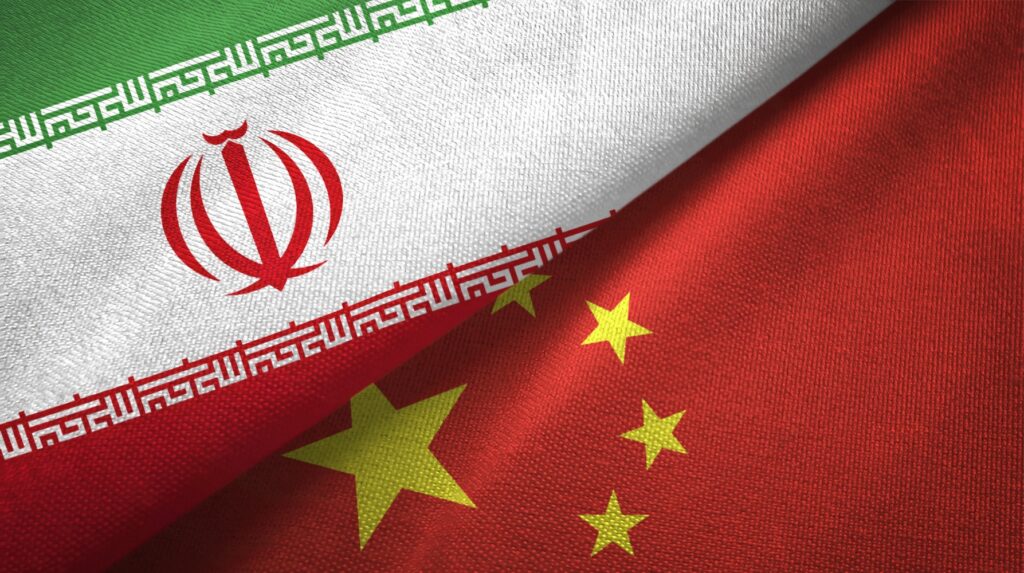Christian group warns China-Iran alliance will increase Christian persecution
A human rights organization is sounding the alarm about closer ties between China and Iran, saying the alliance means further persecution of Christians in both countries.
The concern comes as the…

A human rights organization is sounding the alarm about closer ties between China and Iran, saying the alliance means further persecution of Christians in both countries.
The concern comes as the anti-Western BRICS nations – originally Brazil, Russia, India, China and South Africa, but now including Egypt, Ethiopia, Iran, Saudi Arabia, and the United Arab Emirates – met for their annual summit in Kazan, Russia.
“China and Iran are known persecutors of Christians, and their mutual support could lead to increased persecution as both countries work to eliminate the practice of Christianity within their borders,” said International Christian Concern (ICC) in a statement about the summit.
In a report released this month covering religious persecution in 2022-2024, Christian advocacy group Aid to the Church in Need warned, “There was intensified targeting of Christians as enemies of the state and/or of the local community, as authoritarian regimes, including those in China, Eritrea, India and Iran, ramped up repressive measures.”
The group said state and non-state actors are weaponizing existing and new legislation, as well as criminalizing certain acts as a means of oppressing Christians.
Earlier in September, China implemented measures forcing religious activities, including sermons, to integrate “socialist values and Chinese characteristics,” said ICC.
The term “Chinese characteristics” is code used by Chinese communists to disguise repressive, authoritarian government as something the Chinese can help other countries turn into a virtue for the ruling class.
In China, clergy members must also pledge their allegiance to the Chinese Communist Party. These measures come as thousands of Christians have endured torture, harassment and imprisonment for years at the hands of communist authorities, according to the ICC.
In Iran, measures aimed at persecuting Christians are more informal.
In major cities, the state has some Christians arrested and other Christians imprisoned, while in rural areas, the families and communities persecute Christians without much state encouragement, according to Global Christian Relief (GCR).
“Others are simply excluded from their place of study or work. Some choose to leave the country; a few are obliged [to leave] due to intense pressure and threats of imprisonment,” said GCR. “For all, there is denial of the right to open, public worship with fellow disciples.”
Some critics have charged that Pope Francis is a witting accomplice in the more formal persecution of Christians in China.
On the same day the report from Aid to the Church in Need was released about Communist China’s persecution of the church, the Vatican reauthorized an agreement with China’s Communist Party (CCP) that allows the CCP control over Catholic Church affairs, including the appointment of bishops in China, an agreement first reached in 2018 between the CCP and the Vatican.
“A great country. I admire China. I respect China,” said Francis on the extension of the agreement, according to the South China Morning Post. “It’s a country with a millennial culture, with a capacity for dialogue and understanding that goes beyond other systems of democracy.”
But the former Bishop of Hong Kong, Cardinal Joseph Zen Ze-Kiun, was highly critical of the pope for the agreement.
“Francis may have natural sympathy for Communists because for him, they are the persecuted,” wrote Zen in the New York Times. “He doesn’t know them as the persecutors they become once in power, like the Communists in China.”
Since Zen made those comments, the CCP arrested Zen and charged him with “colluding with foreign forces.” Zen was one of ten Chinese bishops targeted by Beijing in the wake of the 2018 CCP-Vatican deal.
In 2020, the last time the CCP-Vatican agreement was extended, then-President Donald Trump and Secretary of State Mike Pompeo both blasted the pope over the extension.
“If the Chinese Communist Party manages to bring the Catholic Church and other religious communities to heel, regimes that disdain human rights will be emboldened, and the cost of resisting tyranny will rise for all brave religious believers who honor God above the autocrat of the day,” said Pompeo in words that could have anticipated the closer China-Iran alliance.
The ICC warned that the warming relations between China, which persecutes Muslims, Christians and other religions, and Iran, which has supported the Hamas attack on Israel and is actively hostile to Christians, should be cause for growing concern.
“China’s unwavering support of Iran, regardless of Iran’s persecution of Christians and backing of terrorists, shows the world where its priorities lie,” said the ICC, according to the Christian Post. “The combined power of the two nations also raises alarm among Christians, who have already endured years of abuse and imprisonment under the two regimes.”



